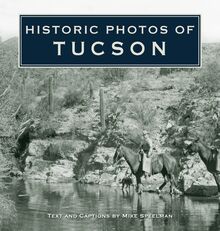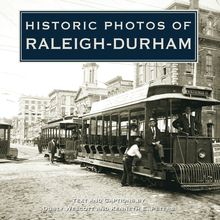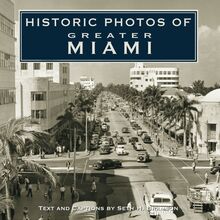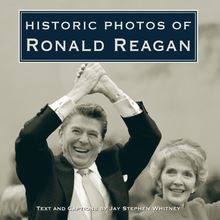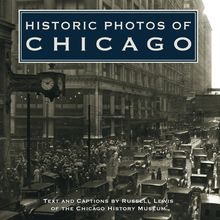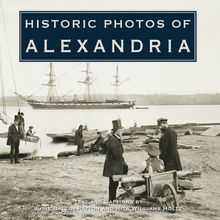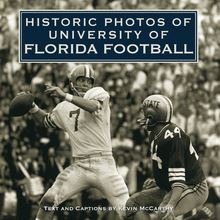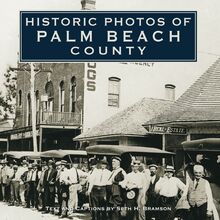Historic Photos of Christmas in Chicago , livre ebook
205
pages
English
Ebooks
2008
Vous pourrez modifier la taille du texte de cet ouvrage
Obtenez un accès à la bibliothèque pour le consulter en ligne En savoir plus
Découvre YouScribe et accède à tout notre catalogue !
Découvre YouScribe et accède à tout notre catalogue !
205
pages
English
Ebooks
2008
Vous pourrez modifier la taille du texte de cet ouvrage
Obtenez un accès à la bibliothèque pour le consulter en ligne En savoir plus
Publié par
Date de parution
01 novembre 2008
Nombre de lectures
0
EAN13
9781618586131
Langue
English
Poids de l'ouvrage
17 Mo
In Chicago, as wherever Christmas is celebrated, holiday traditions reflect both universal themes and local color, both the spirit of giving and snow-covered State Street. In 1913, Chicago decorated its first civic Christmas tree, while many others arrived on the fabled "Christmas tree ships” of the era. Holiday shoppers crowded the sidewalks in front of stores such as Marshall Field & Company, Santa Claus held the rapt gaze of children, and churches and charities reached out to the needy. So Christmas was then, and so it has remained.
Historic Photos of Christmas in Chicago offers nearly 200 images of the Christmas season in the Windy City, from festive outdoor celebrations to intimate family gatherings. Culled from the archives of the Chicago History Museum, these images depict the city through the years during its annual celebration of this very special holiday, and so provide a chance to look back in time while reflecting on the meaning of Christmas today.
Publié par
Date de parution
01 novembre 2008
EAN13
9781618586131
Langue
English
Poids de l'ouvrage
17 Mo
HISTORIC PHOTOS OF
CHRISTMAS IN
CHICAGO
T EXT AND C APTIONS BY R OSEMARY K. A DAMS
A Christmas tree at Wabash and Wacker, December 1969. Lorado Taft s monument featuring George Washington clasping hands with Robert Morris and Hyam Salomon, who helped finance the American Revolution, appears at right. In the background, Marina Towers, popularly known as the corn cob buildings, is outlined in Christmas lights.
HISTORIC PHOTOS OF
CHRISTMAS IN
CHICAGO
Turner Publishing Company
200 4th Avenue North Suite 950
Nashville, Tennessee 37219
(615) 255-2665
www.turnerpublishing.com
Historic Photos of Christmas in Chicago
Copyright 2008 Turner Publishing Company
All rights reserved.
This book or any part thereof may not be reproduced or transmitted in any form or by any means, electronic or mechanical, including photocopying, recording, or by any information storage and retrieval system, without permission in writing from the publisher.
Library of Congress Control Number: 2008907573
ISBN-13: 978-1-59652-511-5
Printed in the United States of America
08 09 10 11 12 13 14-0 9 8 7 6 5 4 3 2 1
C ONTENTS
A CKNOWLEDGMENTS
P REFACE
B EGINNING TO L OOK A L OT L IKE C HRISTMAS D ECORATING THE C ITY
O C HRISTMAS T REE A N E VERGREEN T RADITION
H ERE C OMES S ANTA C LAUS S T . N ICK AND H OLIDAY S HOPPING
T IS B ETTER TO G IVE C HARITY AT C HRISTMAS
N OTES ON THE P HOTOGRAPHS
Even in the heart of the city, Chicago takes on old-fashioned country charm after a snowfall, as in this view of Lincoln Park.
A CKNOWLEDGMENTS
With the exception of cropping images where needed and touching up imperfections that have accrued over time, no other changes have been made to the photographs in this volume. The caliber and clarity of many photographs are limited by the technology of the day and the ability of the photographer at the time they were made.
This volume, Historic Photos of Christmas in Chicago , is the result of the cooperation and efforts of many individuals, organizations, and corporations. It is with great thanks that we acknowledge the valuable contribution of the Chicago History Museum for its generous support.
I would like to thank Rob Medina, rights and reproduction coordinator at the Chicago History Museum, in particular for his work on this book. His knowledge of the photography collection and his coordination of the image scanning were invaluable. Photographers John Alderson and Jay Crawford brought their usual professionalism and expertise to the digital imaging process. Simone Martin-Newberry organized the photography orders with a great eye for detail. Publications interns Laurie Stein and Catherine Gladki provided invaluable assistance for this book. I also am grateful for the support of Gary Johnson, president; Russell Lewis, executive vice president and chief historian; and Phyllis Rabineau, vice president for interpretation and education for their support on this project.
For my parents, Kenneth and Irene Adams
- Rosemary K. Adams
P REFACE
As the twentieth century dawned in Chicago, expectations for the twenty-first century far ahead were dim, as this futuristic vision in a Chicago Tribune editorial from December 1900 revealed:
Christmas in the year 2000 dawned bright and clear over Chicago, only that comparatively few persons were interested in it in that early stage. Santa Claus and St. Nicholas had been myths for seventy-five years, and the ravages of the twenty-five years before had stripped the north woods of their evergreens. The reindeer was extinct and the furry robes once accredited to these guardian genii of Christmas were to be found only in museums of natural history. The spirit of Christmas became lost.
It appeared that the abundant fears of the unknown and the worst possible scenario imaginable could be summed up with the disappearance of Christmas, a fate that seemed grim indeed.
Happily, like many visions of the future, this one has not been realized. American cities have changed dramatically over the past century, and in viewing images of Chicago at Christmas during this era, it is tempting to focus on the differences from one decade to the next. But what are more striking are the similarities: Chicago of the twenty-first century celebrates Christmas with as much enthusiasm and with many of the same traditions as it has for much of its history. In 1900, Chicagoans bought fresh Christmas trees on corner lots, crowded State Street in search of the perfect gifts for family and friends, dropped coins in Salvation Army baskets to help the less fortunate, and dreamt of a white Christmas. New customs gradually became traditions: the city s first official Christmas tree appeared in 1913, and Marshall Field and Company on State Street became nearly synonymous with the holiday with its whimsical windows and famed Walnut Room tree. Celebrating Christmas today-whether in your home, your neighborhood, or on State Street-remains a familiar part of city life.
In Charles Dickens s A Christmas Carol , Ebenezer Scrooge had the unique opportunity to visit Christmas past, present, and future one unforgettable night, and he came to understand how each of them is but one part of the great tradition of Christmas. It is not surprising that the story unfolds in London. Dickens understood how cities were transforming his nineteenth-century world, and A Christmas Carol thus gives the tradition of Christmas a special place in the whirl of a rapidly changing city. Today, despite our hurried pace-or perhaps because of it-the holiday season is a time to reflect on Chicago and the world and to feel the flood of memories of Christmas past as we look to Christmas future.
- Rosemary K. Adams
Mailman N. Sorenson poses with his heavy load of Christmas mail and parcels, 1929.
B EGINNING TO L OOK A L OT L IKE C HRISTMAS
D ECORATING THE C ITY
Chicago s tradition of decorating for the holidays reaches back to the middle of the nineteenth century. Newspaper articles from as early as the 1860s extol the decorations that help brighten this special time of year. For decades, the Loop and the major shopping thoroughfares, such as State Street and Michigan Avenue, have boasted the city s most elaborate decorations. In early days, Christmas trees and swags of evergreen branches appeared around the city. Eventually, sidewalks blazed with lights strung along trees and around store windows. Skyscraper lighting created seasonal shapes such as stars and crosses. Since the early twentieth century, the city of Chicago has decorated an official tree, often unveiled or dedicated by the mayor. Parades have been another popular way to celebrate.
Nature plays its role in setting the stage for the holidays. Chicago winters are notorious-cold, blustery, snowy, and seemingly endless. Snowstorms cripple the city, disrupt air travel nationwide, and can even doom a mayor s chances of re-election. Yet each year with the approach of December 25, Chicagoans wish longingly for a white Christmas, and meteorologists predictions for the big day take on a suspense unknown the rest of the year. Snow is a fact of life in a Windy City winter, but a sparkling blanket for the holidays seems almost a requirement for celebration. In 1899, the Tribune consoled readers that although there was no snow, the cold weather made for spectacular ice skating: It was one of the few old-fashioned, outdoor winter sports that could be enjoyed. The ice at Lincoln Park was perfect, and those who had regretted that the great winter holiday was a green one found consolation when the sharp steel struck the hard ice.
Irving Berlin s 1942 song White Christmas, recorded by Bing Crosby, expressed a nostalgic longing for such cozy winter weather; it was particularly poignant for soldiers serving in World War II who were not sure when they would see home again. It seems, however, that white Christmases happened more often in Chicagoans imaginations than in actuality: in 1965, after promising a white Christmas for that year, the Tribune reflected, Chicagoans should be getting used to not having a white Christmas. Weather charts show that in only about one-third of the last 72 years has there been enough snow to provide a truly white Christmas.
New York City claims to have decorated the nation s first official civic Christmas tree in 1912; Chicago offered its own version for residents in 1913.
A group of women make Christmas wreaths, ca. 1906.
Santa peeks out from an ad for Maurice L. Rothschild Company on the side of a shop, at left, 1905.
A two-horse team pulls men on a snowplow in Lincoln Park, ca. 1903.
A white Christmas has long been the sentimental ideal, and Chicagoans have enjoyed many over the years. Here, shoppers brave a storm, ca. 1905.
Snow-covered paths near a pedestrian tunnel in Lincoln Park, 1903.
Children wearing skates and costumes pose on the ice at the Chicago Daily News Ice Carnival. The tree in the center is actually a child in costume.

